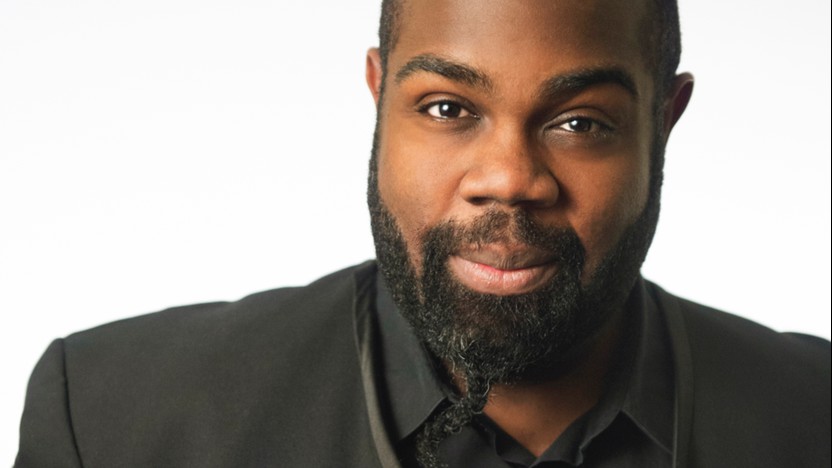Reginald Mobley


Countertenor Reginald Mobley fully intended to speak his art through watercolors and oil pastels until circumstance demanded that his own voice should speak for itself. Since reducing his visual color palette to the black and white of a score, he has endeavored to open a wider spectrum onstage.
Particularly noted for his “crystalline diction and pure, evenly produced tone” (Miami Herald), as well as “elaborate and inventive ornamentation” (South Florida Classical Review), Reggie is rapidly making a name for himself as soloist in Baroque, Classical, and modern repertoire. His natural and preferred habitat as a soloist is within the works of Bach, Charpentier, Handel, Purcell, as well as other known Baroque Period mainstays. Not to be undone by a strict diet of cantatas, odes, and oratorios, Reggie finds himself equally comfortable in rep of later periods and genres. Such works as Haydn’s Theresienmesse, Mozart’s Requiem, Bernstein’s Chichester Psalms, and Orff’s Carmina Burana. He has also performed the title role of “Paris” in the Florida premiere of John Eccles’ Judgment of Paris, under the direction of Anthony Rooley and Evelyn Tubb.
A longtime member of the twice GRAMMY® nominated Miami based professional vocal ensemble, Seraphic Fire, Reggie has had the privilege to also lend his talents to other ensembles in the US and abroad. Such as the Dartmouth Handel Society, Apollo’s Fire, Vox Early Music, Portland Baroque Orchestra, North Carolina Baroque Ensemble, Ensemble VIII, San Antonio Symphony, Early Music Vancouver and Symphony Nova Scotia under direction of Alexander Weimann, and the Oregon Bach Festival under the direction of Matthew Halls.
Not to be held to conventional countertenor repertoire, the “Barn-burning, [...]phenomenal” male alto has a fair amount of non-classical work under his belt. Not long after becoming a countertenor, he was engaged in several musical theatre productions as a principal or secondary role. Most notable among them was the titular role in Rupert Holmes’ Mystery of Edwin Drood, and “Jacey Squires” in Meredith Willson’s The Music Man. In addition to his work in musical theatre, he performed many cabaret shows and sets of jazz standards and torch songs in jazz clubs in and around Tokyo, Japan. Reggie studied voice at the University of Florida with Jean Ronald LaFond, and Florida State University with Roy Delp.
